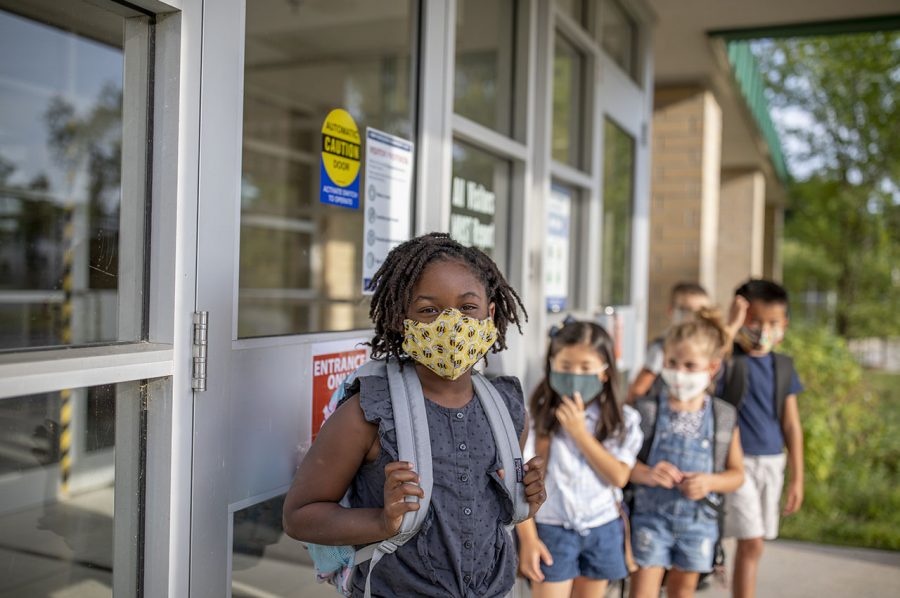Do You Mind? Post-COVID Mental Health and School Performance
What do the children need to succeed in school? Turns out, community and a counselor.
As of Sept. 23, Piedmont, Hayward, and Oakland students — 12 and older — must be vaccinated or undergo weekly testing to attend school in person. This mandate goes into effect starting November for Piedmont and December 17 for Hayward and Oakland.
Vaccine mandates have yet to be implemented statewide, delegating the decision to individual school districts and counties. Currently, West Costa Contra and Berkeley counties are seeking to establish a vaccine mandate.
With neighboring counties considering adopting similar measures one at a time, battles between parents and the school districts intensify. Children in lower grades have seen a tremendous loss of learning in math and English, likely as a result of decreased enrollment, attendance, difficulties in implementing digital solutions, and lack of community engagement that is crucial for developing minds.
Quality of learning has also been stratified based on socio-economic status, as the digital divide and the lack of access to technology disproportionately affects learning outcomes of low-income, immigrant, and/or financially insecure students. Overall, 1.8 trillion hours of instructional time globally has been lost due to the pandemic, a UNICEF study found.
To combat this, the state of California and its constituent counties have adopted policies that fund and support schools by providing support programs and addressing material needs.
The passing of the $4.5 billion federal Coronavirus Aid, Relief, and Economic Support Act (CARES) in March 2020 allowed California schools to supply their students with the necessary technology, raising the share of adequate device access from 67% to 82%, as well as provide schools with opportunities to restart mental health, extracurricular, and tutoring services on campuses, according to PPIC study.
According to the study, 76% of school districts now require 3-6 hours of live instruction per day — an improvement since Spring 2020, with further improvements anticipated as the pandemic matures and government response becomes more refined.
“The pandemic has been traumatic for many children, for whom finding ways to connect is essential [for holistic development],” said Dr. Greg Jennings, a professor of Educational Psychology and youth resilience expert.
Jennings and the Educational Psychology Department have partnered with Community Counseling Clinic (CCC) and the Hayward Promise Neighborhood (HPN) Grant to provide community-based counseling services to the local Hayward families. “Working class families have had distinct concerns that other families did not. [These families exhibited] heightened levels of anxiety, as parents [concern themselves with existential questions]: ‘What if we get sick and we can’t work? What if we can’t feed ourselves tomorrow?,’” Jennings explained.
Jennings has also emphasized the intersectionality between low-income and experiences of discrimination of the families, on whom the COVID-induced lockdowns have had the most austere of effects: “Children of poorer fit have not had the resources to thrive, most of them also being victims of sexism, racism, homophobia, and otherism.” Jennings defines “otherism” as reactionary hostility, which, at the behest of the pandemic, contributed to a diminished sense of community and belonging.
For Jennings, first-year schoolchildren and students are most vulnerable, and are likely to need the most support. “While a service gap and the stigmas surrounding mental health do exist,” asserts Jennings, “K-12 schools have slowly been hiring more counselors and health clinic professionals,” speaking of the dissipating taboo surrounding mental health.
To Jennings, the silver lining lies with the proliferation of mental health and an empathetic generation of psychologists. “We have a special education program [at CSUEB] that is bringing in non-traditional students and grad students into [affected] communities, helping the families. We need to encourage those in the professions of service.” In Jennings’s eyes, mental health and emotional support for the vulnerable and COVID-affected is fundamental if California is to return to pre-pandemic levels of academic achievement.


